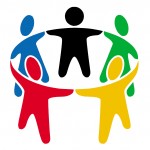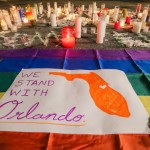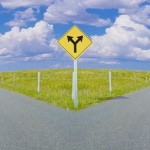This sermon was delivered this past Shabbat at BMH-BJ: The Denver Synagogue in Denver, Colorado.
The Verazano Bridge, Triboro Bridge, George Washington Bridge, the Brooklyn-Battery Tunnel, the Brooklyn Bridge, the Queens-Midtown Tunnel; all closed and shut down. No going in and no going out of New York City. This almost sounds like the beginning of a summer blockbuster movie, but this past week this was the harsh and unforgiving reality for millions of people in the Tristate area. No subways, no trains, no buses and no electricity or running water for some 4 million people.
It is terrifying and deeply humbling that even in our modern technological world, the brutality of nature can be unleashed and wreak havoc on our infrastructure and bring one of the most powerful and largest cities on earth to a crippling halt. The New York Stock Exchange, an organization that never takes a workday off, was closed for two consecutive days, the first time that has happened because of weather in more than a century.
When we see the images on our televisions and read the stories of harrowing survival and of tragic endings how are we to respond? What are we to do? It is so easy to turn the page or flip to another channel. After all, after a long day of work, do I really need to be bothered by the suffering of others?
Parshat Vayera presents two models of response to disaster. Indeed, the two models presented are in response to the very exact same disaster and the results are quite surprising.
The city of Sodom is up in flames. The smoke can be smelled for miles away. People are fleeing every which way in an attempt to find safe shelter. Sodom, with its corrupt moral values and capricious leadership, is no longer. Abraham’s nephew Lot, his wife and his family, were fortunate to be given advance notice of the impending disaster on account of their counter-cultural life of morality in the face of depravity and ethics in the face of violence.
The family is given only one instruction: do not look back.
It is this one seemingly simple instruction that in the end is too much for Lot’s wife to comply with and in the end she does look back and finds not only the destruction of the city of Sodom before her very eyes but her own downfall as well.
Secondly, the Torah tells us that after Lot and his daughters found refuge, his daughters began to panic. If their whole world had been a single city than the destruction of that city meant the destruction of the whole world. Who were they to marry? Who were they to continue their lives and bring forth the next generation of their family with? Desperate situations bring desperate actions and his daughters certainly took a desperate course of action. The children they conceived from their desperation were named none other than: Moav, from father, and the second Ben-Ammi, the more modest and concealed name of “son of my people.”
If only Lot’s wife had resisted looking back at the destruction, if only she could have closed her eyes, and if only Lot’s daughters had resisted the fear and if only they could have opened their eyes. One disaster and two opposite reactions.
I believe that these contrasting responses have much to teach us about how to relate when a natural disaster strikes. Lot’s wife had no choice but to turn back and stare in disbelief and utter fascination at the devastation to her former hometown. It’s not like she could have turned on the television, loaded up the news on her iPad or tuned her radio to the right station. Her turning back and staring was perhaps the ancient equivalent of slowing down in one’s car to gawk at the accident on the side of the road.
All of us possess a morbid curiosity about these sorts of things. All of us want to know what is going on and even though we know we should not stare and we close our eyes, sometimes one eye can’t help but open just a bit trying to get a glimpse. We need to learn and cultivate our awareness of when to turn our gaze away. When our interest and our curiosity is not for the benefit of the other but for us and satisfying our own interest.
Then there are times where we must engage in looking beyond our confines; lift our head up and gaze out past our narrow vision and see a greater picture. These are times when we must approach the situation with our eyes wide open. A better understanding will not only yield a bigger picture but provide for a better response.
If my interest is to help, I can’t help unless I know and I can only know if I turn my head and pay attention.
Lot’s wife and Lot’s daughters respectively present two paradigms of response. These paradigms could not be farther apart: open your eyes or close them shut. Which response is called for in large part depends on you. Knowing yourself will help you determine which path to take. Sometimes we are called upon to turn the other way and sometimes we must not only slow down in our car but pull over and lend a helping hand.
The Hurricane that swept through much of the Eastern seaboard is a moment that calls for us to open our eyes wide. Colleagues of mine in the New York and New Jersey area have organized groups of people to survey the tall apartment buildings in Lower Manhattan, visit the elderly and home-bound who, because their elevators are without power, have no way of leaving their apartments, and making sure they have bottled water, food and sometimes batteries to power their medical equipment.
While we are not able to traverse the country and begin walking the streets of Lower Manhattan, we are able to open our pocketbooks and assist those who are on the ground. The Allied Jewish Federation of Colorado has begun a drive to collect funds that will directly go to provide relief for those most affected by this storm.
This is the imperative that we with our eyes wide open are called to. May we heed that call.
















